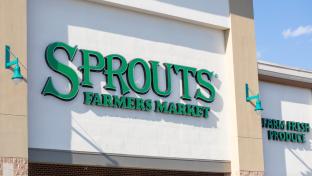Coffee leads the way in compostability

Out of all the beverage options, coffee and tea products have seen by far the most success and advancements with compostable packaging and more, according to speakers at the Store Brands Industry Forum on Beverages held virtually Sept. 29.
Given that the coffee and tea can already be composted, compostable pods make for an easy single-use compostable item, and one that private label producers can especially leverage to help grow sustainable packaging options in the future.
“The product itself, the tea and the coffee after brewing, are considered food scraps and are ideal for composting,” said Rhodes Yepsen, executive director of Biodegradable Products Institute (BPI), during the keynote session at the forum. “We’ve seen a lot of companies overcome challenges and I really think that we will see retailers partner with these companies by switching their store brands to coffee and tea compostable formats. I think that will bring a lot of things into the mainstream for compostability, because consumers trust their store brands.”
The Store Brands Industry Forum on Beverages was held on Sept. 29, giving retailers a chance to listen and connect with private label industry experts. Hosted by Store Brands executive editor Dan Ochwat, the beverage forum consisted of four sections: coffee & tea, dairy, nonalcoholic beverages, and alcoholic beverages.
The event kicked off with a keynote address, now available on demand, in which Ochwat spoke with Susan Thoman, managing director of Compost Manufacturing Alliance (CMA), and Yepsen about the future of sustainability in private label. CMA works with compost facilities throughout North America to certify compostables via lab and field science, and works to enhance composting capacity and the development of sustainable packaging, whileBPI is a nonprofit organization that certifies and advocates for compostable products in diverting organic waste to composting.

“There’s a great case for compostability in those hot beverage categories,” said Thoman. “We need the nutrient rich coffee and tea feedstocks to make great compost. There’s a lot of contamination in compost streams currently, and non-compostable pods can cause this if composted. So these materials can be used to minimize contamination so that we don’t have to send these materials to the landfill.”
While the interest around compostable packaging is expanding, it isn’t always the best solution for retailers and their private label products.
“We get calls every week from people who are interested in compostable packaging and if it’s something to work for them and their items,” said Yepsen. “We always tell people that it depends on what the existing format is for the item. When we look at solutions to plastic packaging, I think it’s important to note that we don’t want all packaging to be compostable.”
Those already registered for the Store Brands Industry Forum on Beverages can watch a webcast of the panel here, or it is available on demand for any non-registered viewer as well.


